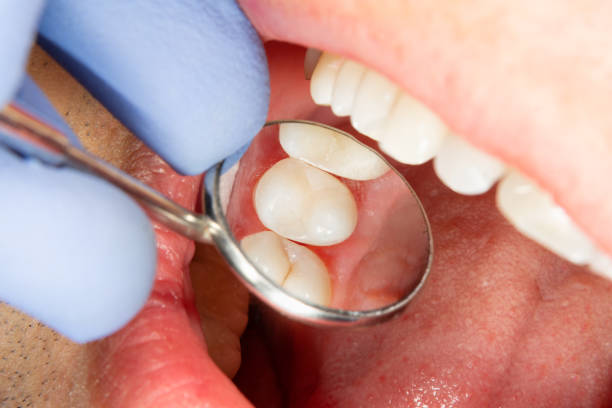
A cracked tooth might seem like a minor dental issue, especially if it doesn’t cause immediate pain. However, ignoring it can lead to serious consequences that affect both oral health and overall well-being. Understanding the potential risks of leaving a cracked tooth untreated is crucial to prevent complications.
What Causes a Cracked Tooth?
Common Triggers
A cracked tooth can result from various factors, including biting down on hard foods, grinding teeth (bruxism), or accidents involving trauma to the face. In some cases, natural wear and tear due to aging or weakened enamel from cavities can also contribute to tooth cracks.
Recognizing the Signs
While some cracks are visible, others may only cause symptoms such as sensitivity to hot or cold temperatures, discomfort while chewing, or intermittent pain. These subtle signs should not be ignored, as they often indicate underlying damage that requires attention.
Immediate Risks of Ignoring a Cracked Tooth
Increased Sensitivity and Pain
When a tooth cracks, the protective enamel layer is compromised, exposing the underlying dentin and nerves. This can lead to heightened sensitivity and pain, especially when consuming hot, cold, or sugary foods. Over time, this discomfort can worsen, making it difficult to enjoy meals or drinks.
Bacterial Infections
A cracked tooth creates an opening for bacteria to enter the inner layers of the tooth, potentially leading to infection. If untreated, this infection can spread to the gums, jawbone, or even other areas of the body, resulting in severe health problems such as abscesses or systemic infections.
Long-Term Consequences of Ignoring a Cracked Tooth
Tooth Decay and Structural Weakness
A cracked tooth is more susceptible to decay, as bacteria can accumulate in the crack. This decay weakens the tooth further, increasing the risk of additional fractures or even complete tooth loss.
Over time, the structural integrity of the affected tooth diminishes, potentially impacting neighboring teeth and the overall alignment of your bite.
Gum Disease
If bacteria from a cracked tooth reach the gum tissue, they can cause inflammation and infection, contributing to periodontal disease. This condition can lead to gum recession, bone loss, and, ultimately, the loss of multiple teeth if left untreated.
Impact on Jawbone Health
A cracked tooth that becomes severely infected or requires extraction can result in bone loss in the jaw. The absence of a tooth root leads to a lack of stimulation for the jawbone, causing it to deteriorate over time. This can alter facial structure and complicate future dental treatments, such as implants.

Systemic Health Implications
Spread of Infection
An untreated cracked tooth that develops an infection poses risks beyond oral health. Bacteria can enter the bloodstream, potentially leading to conditions such as endocarditis (an infection of the heart lining) or complications in other organs.
Chronic Pain and Discomfort
Ignoring a cracked tooth often leads to chronic pain that interferes with daily activities. This persistent discomfort can affect eating, speaking, and sleeping, reducing the overall quality of life.
Treatment Options for a Cracked Tooth
Early Intervention
Seeking treatment promptly for a cracked tooth can prevent many of the complications outlined above. Depending on the severity of the crack, your dentist may recommend options such as bonding, crowns, or root canal therapy to restore the tooth’s integrity and functionality.
Advanced Cases
In cases where the crack extends below the gum line or the tooth is severely damaged, extraction may be necessary. Replacing the tooth with an implant, bridge, or denture ensures the surrounding teeth and jawbone remain healthy.
Prevention Strategies
Protecting Your Teeth
Preventing cracked teeth involves adopting habits such as avoiding chewing on hard objects like ice or pens, wearing a mouthguard during sports, and addressing teeth grinding through custom nightguards.
Regular Dental Check-Ups
Routine dental visits allow your dentist to identify and address minor cracks before they worsen. Early detection and treatment save time, money, and unnecessary pain in the long run.
Why Timely Treatment Matters
The long-term effects of ignoring a cracked tooth highlight the importance of seeking timely dental care. Addressing the issue early not only prevents pain and discomfort but also reduces the risk of infections, tooth loss, and systemic health problems.
Conclusion
A cracked tooth may seem like a minor inconvenience, but its long-term consequences can be severe. From increased pain and sensitivity to infections that impact overall health, the risks of ignoring a cracked tooth far outweigh the inconvenience of seeking treatment.
By understanding the potential complications and prioritizing regular dental care, you can protect your oral health and avoid the costly and painful outcomes associated with untreated dental issues. If you suspect you have a cracked tooth, consult your dentist promptly to ensure it receives the care it needs.





